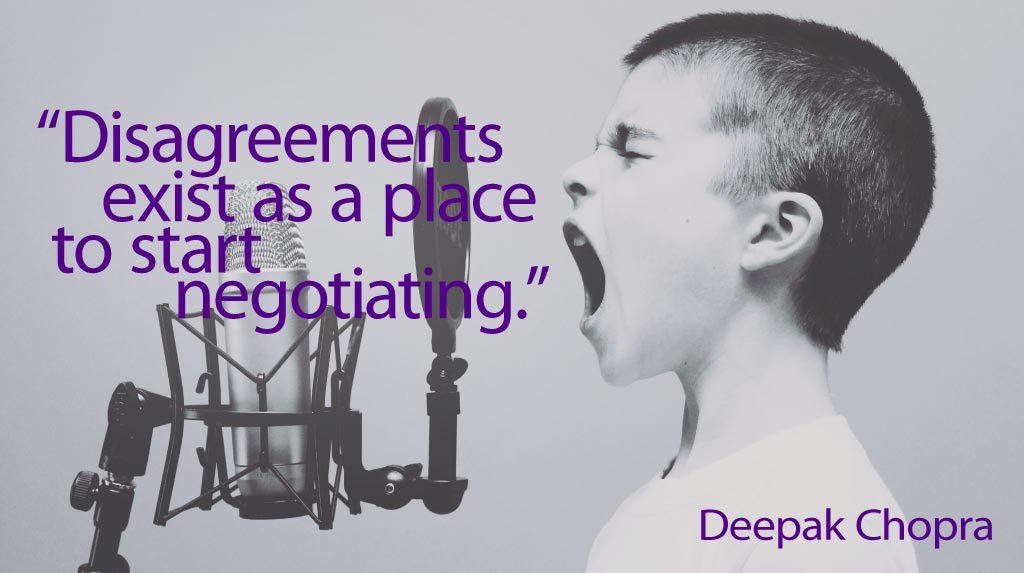Deepak Chopra is a busy guy. The alternative medicine expert published his ninety-first book (!) during the pandemic—in addition to founding a global mental-health initiative called Never Alone and launching his own app: Chopra Meditation and Well-Being.
While Chopra has been staying active, many of his works, ironically, are about how activity isn’t always the way forward. Most of the time, he explains, taking a step back and finding your inner reserve of calm is the best way to manage challenges. That’s especially true when it comes to navigating interpersonal conflicts.
Here are some of his insights on how to navigate conflict and work toward better communication and stronger relationships.
1. step back (or walk away altogether).
“The supreme art of war is to subdue the enemy without fighting,” military strategist Lao Tzu wrote 2,500 years ago. Basically, he means that the best war is one you don’t fight at all.
Chopra echoes that sentiment. “Walk away any time you detect an impasse,” he told the New York Times. “Anything else is futile.”
That’s true whether it’s a relative whose politics you disagree with or a belligerent stranger on Facebook. If you choose not to engage—and that is always a choice you can make—you can make Lao Tzu and yourself proud and defuse the situation before it arises.
2. listen—really listen.
While the best conflict is no conflict, it can be hard to avoid someone entirely: particularly with so many of us stuck indoors these days. If you need to hash it out, the best thing you can do, according to Chopra, is to listen first. What he’s talking about is active listening—really listening, as opposed to simply waiting until it’s your turn to speak.
“If you’re not aware of what is going on in [the other person’s] mind … where is the solution?” Chopra asks.
The CDC has a great guide to active listening with some examples. The examples are about communicating with children—but these tips apply to any situation. It all boils down to showing respect by giving the other party your full attention.
3. learn what makes the other person tick.
Becoming an active listener is just the first step. The real goal is listening to understand—because only when you really understand the other person can you take their perspective in the conflict.
Chopra’s suggestion: Go out for a meal with them. The objective is simply to get to know the person on a human level—how was their childhood? What are their parents like? Understanding the core parts of a person’s self-image and values—what Chopra calls their core beliefs—will help you bridge the communication gap.
4. don’t get caught up in “winning.”
Conflict can quickly devolve into a battle where each party is trying to one-up the other. That’s the wrong mindset, Chopra says. Instead of trying to “win” the conflict, you should instead aim for a negotiated solution. What can turn the tide in interpersonal conflict is making it about the other person’s needs.
“What is the need that hasn’t been met?” Chopra suggests asking. If you reorient yourself around filling an unmet need, the conflict is more likely to dissolve.
And be quick to forgive—even if you feel like an injustice has been done to you. Don’t get bogged down in what has already happened; focus on how you and the other party can move forward together.
As Chopra says: “Let’s change the story.”
Have you successfully navigated a conflict using any or all of these techniques? Hit us up on social media: @illumyinc on FB, Twitter, and Instagram and tell us all about it.
Photo by Jason Rosewell on Unsplash


